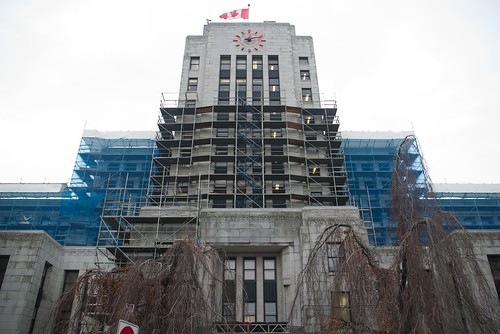Preface
The appended transcript deserves careful examination. It records in writing what Vancouver Police Department representative Brian Montague said about PiDGiN protest at a press conference on the 17th of April, 2013.
The video stream currently available on the Vancouver Police Department web site only permits a straight play-through that lasts approximately twenty minutes. There is no slider button to permit backtracking and instant replay. Few watchers of the video are likely to have the patience or concentration to wait for a full circular twenty minutes to get one more listen to exactly what was said. This transcript seeks to avoid editorial smoothing, and attempts to capture verbal nuances of hesitation, uncertainty, and groping.
Persons unwilling to plow through the entire transcript may have interest in skipping to the appendix to view highlighted themes extracted from the VPD discourse, accompanied by questions that these themes raise. For a condensed version of the VPD’s unconstitutional decision to arrest the picketers, readers can also see a previous article here, written April 18th.
Notes on the text | All text is Constable Brian Montague speaking, unless marked as “Media.” The appendix contains commentary by Joe Jones. The source of audio and video stream can be found under “Latest Press Conference” at http://vancouver.ca/police




